For those who don’t know, the Hugo Awards are the ultimate sci-fi and fantasy awards. Their judges pick the best books, novels, and other related media that stand out from their peers and give them the notice they deserve. Held yearly, the nominations for the best novels of 2023 have been announced, with the winner to be revealed on August 11th.
Sci-fi and Fantasy are wide genres, covering a lot of ground and types of novels. Curious about this year’s nominees? Wondering if any would fit the type of book you’re looking for? Here we’ll go over this year’s nominees, why they deserve the nod, and discuss what kind of readers might get the most enjoyment from each book.
Starter Villain by John Scalzi
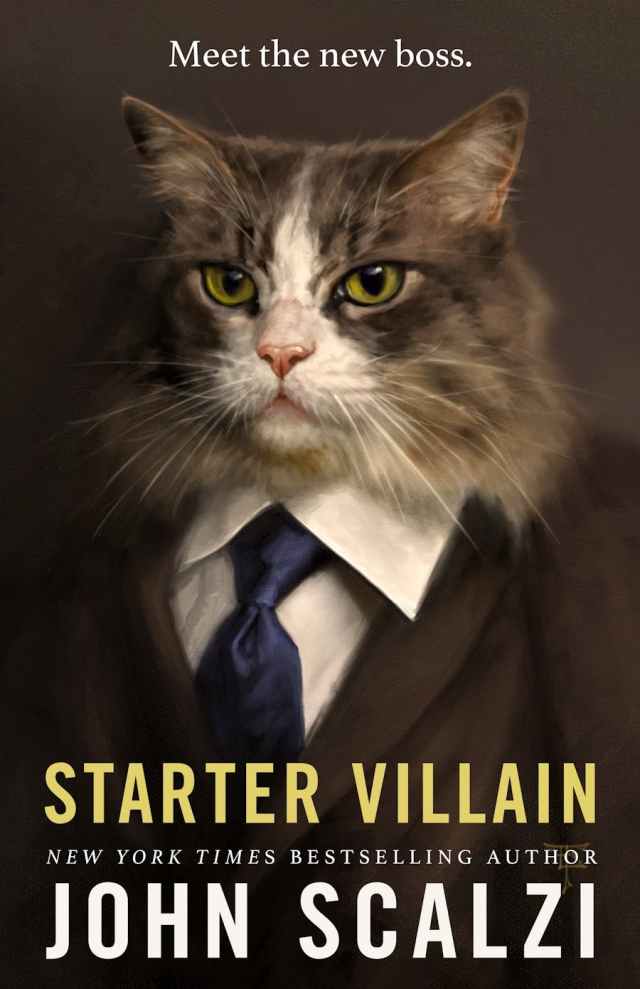
John Scalzi is no stranger to the Hugos, having been nominated multiple times and won once. He’s an author who runs the gamut as far as writing style goes, having written space operas that explore humanity’s desire to grow, as well as fun romps that elicit giggles more than anything else. Starter Villian would seem to trend to the latter rather than the former, but beyond a goofy and hilarious exterior are some solid critiques of late-stage capitalism and the current villains of our age.
Imagine Ron Stoppable inheriting his deceased uncle’s supervillain business, complete with an island lair, as well as a suite of enemies still looking to take what’s theirs. The premise is as fun as it sounds, but what got this book nominated are the critiques that come later. While the Uncle was an old type of supervillain, those that are coming after him are the newer type: Tech bros backed by hedge funds, CEOs of giant corporations, and the nepo baby powerful born with money, having earned nothing themselves.
For readers who are looking for a bit of a laugh, who love the idea of talking spy cats, or who just like seeing the ultra-wealthy fail, this will be the book for you.
Some Desperate Glory by Emily Tesh
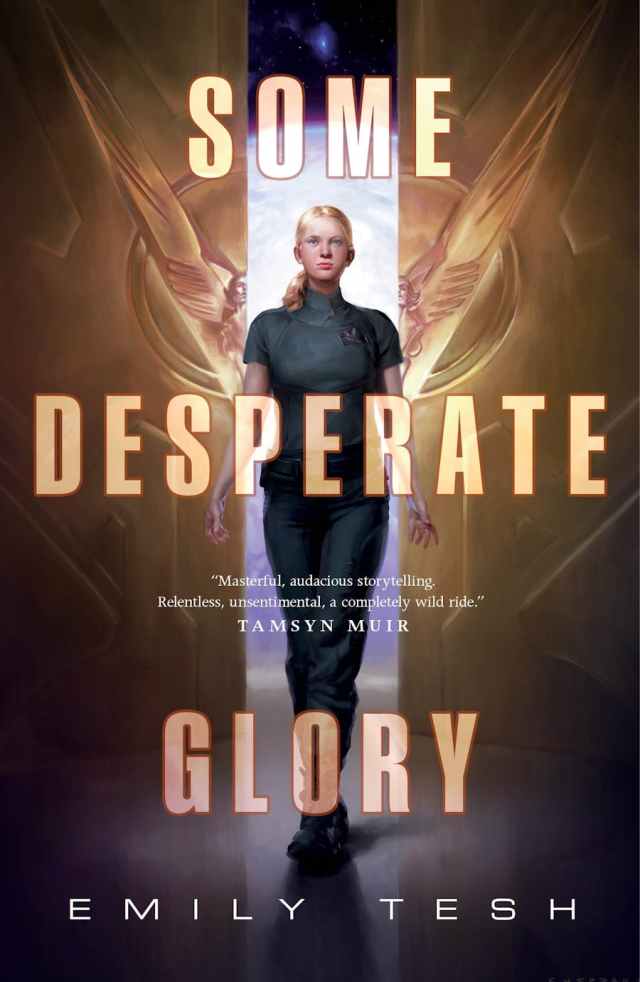
Emily Tesh is a newer name to the Hugos, but her nomination is no less deserved. Some Desperate Glory is a deconstruction of the Space Opera genre, showing the darkness that lurks beneath many of the near-future human societies that we root for. Tesh masterfully dissects the things we don’t question that we maybe should, showing a new way forward that subverts the traditional structure of many classic sci-fi epics.
Our main character is one of the last remaining humans, raised from birth the enact vengeance on those that crossed them. Excelling at combat and frustrated with her role as a breeder to keep humanity alive, she sets out against orders to enact the vengeance she had been trained for. While vengeance is a powerful motivator, anger is also perfecting at blinding us to the evils we ourselves commit. Tesh questions the nature of such ruling governments and how they use sexism, racism, eugenics, and more, throwing back the curtain that readers for years have been fine never looking behind.
For those who love subversions of standard tropes, tales of vengeance gone awry, or who want a YA-adjacent novel that asks harder questions than you would expect, Some Desperate Glory is a solid choice.
Witch King by Martha Wells
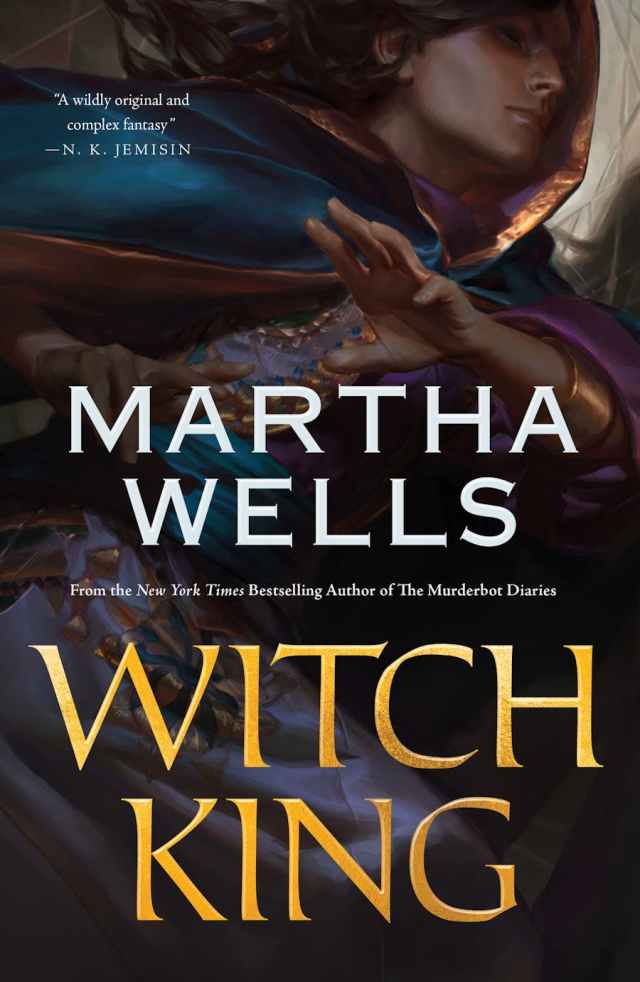
Martha Wells is a well-known name in the sci-fi genre, with her Murderbot series already having several accolades. She seeks now to prove that no one genre can contain her as we move into her new Witch King novel, a fantasy thriller. Wells continues doing what she does best in this novel, creating incredibly real-to-life characters and throwing us into their world. While the world-building can feel breakneck for some, this gives us more time to understand the cast of characters that are introduced, endearing us to them in ways few authors can achieve.
The novel tells two stories, both following the titular Witch King, Kai. The narrative is told from two perspectives, one past and one present, building a history of a world that Kai sought to overthrow and a future after he was betrayed and imprisoned for years. Wells is a master of passive worldbuilding, so expect bits and pieces to be doled out over the whole course of the novel rather than large explanations. Still, as always, the inner workings of Well’s characters truly bring it home. No one writes a protagonist quite like Wells, and she doesn’t falter with the Witch King.
For those who love a good antihero, want to be immersed in a deep world without infodumps, or just love character over everything else in a story, read The Witch King.
The Adventures of Amina al-Sirafi by S. A. Chakraborty
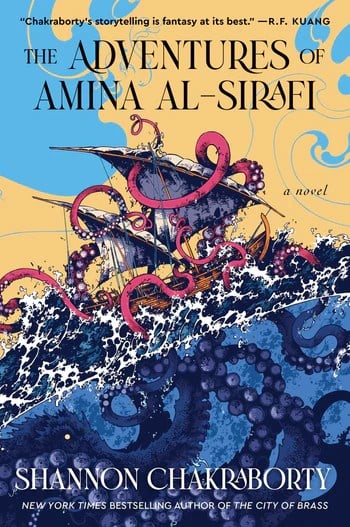
Chakraborty made a name for herself with her City of Brass series, bringing to life a world of Middle Eastern mythology that hasn’t seen as much fiction written about it. In the Adventures of Amina al-Sirafi, we are graced with the same intelligent writing and well-researched world-building that we expect from her, but now used to tell a tale about reaching for glory one last time.
The story follows the eponymous Amina al-Sirafi, once feared pirate of the Indian Ocean, now retired and living with her daughter in solitude. Still, when an opportunity comes for one last score, she can’t resist the itch that calls her back. The book has the feel of many heist novels, following Amina as she gets the gang back together for one last score. Still, the book is separated from the rest by vivid descriptions and incredible historical and mythological research that makes the world feel so much more alive, as well as the discussion and interest it gives to Amina’s plight, being a mid 40’s woman seeking to get back into a world she left behind.
For those who want some good old swashbuckling action, want to read about a world and mythology that isn’t focused on often enough, or who want to read a thoughtful discussion of the give and take of returning to a life you left behind, this book will be perfect.
The Saint of Bright Doors by Vajra Chandrasekera
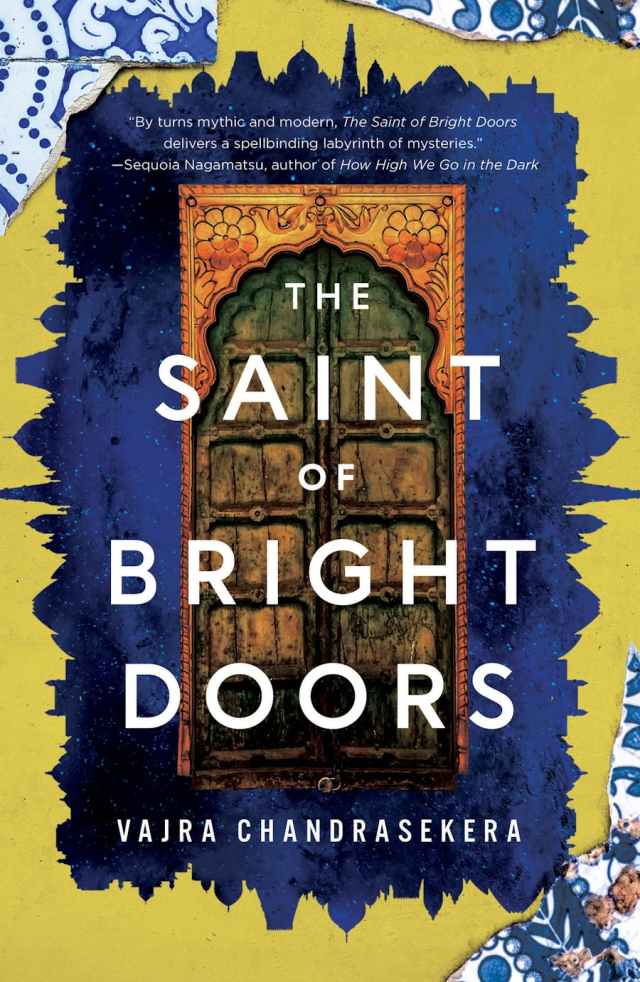
Perhaps the most literary title on this list, The Saint of Bright Doors is a lot of things. It is a look at the mythology of Sri Lankan Buddhists, a takedown of religion-led societies, and a discussion on colonialism, all wrapped in a surrealist shell that defies effort to define it. The book sinks itself into these questions and themes, moving at a slower pace to give readers ample time to understand the author’s points or to form questions of their own.
The book follows Fetter, a once-destined assassin who forwent his calling, now wandering the world unsure, instead focusing on bright doors that have begun appearing in his home city. The book can often be hard to follow, shifting between more standard passages and incredibly dreamlike ones, where the focus and narrative shift constantly. Still, for those that stick with it, the payoffs are wonderful, bringing to life a vibrant and alive city and in a way that is breathtaking to read.
For those who love to get lost in prose, often read more literary works on the side, or want to explore a surreal and beautiful world of mythology retold, pick up Chandrasekera’s novel.
Translation State by Ann Leckie

Leckie won a Hugo previously for the novel Ancillary Justice. In Translation State, we return to this same universe, though the book can be read as a standalone for the uninitiated. The book is full of Leckie’s usual charm, endearing characters fighting for what they believe in, told in a way that feels cozy and inviting. This novel once again focuses on the issues of the future, but rather than focusing on the danger of empires and other Space Opera tropes, Translation State instead chooses to focus on social aspects.
The book focuses on three separate characters, each with their problems but with one overarching thread tying them together: How do our genetics affect us? Do they determine who we are? Are we bound by these ideas predetermined at birth? The characters each grapple with this question in their own way, exploring from many angles the ideas of self-determination rather than our genetics deciding who we are and the trials we must go through to enact change that allows us to live in the ways we want.
For those who like books that ask questions of the future, enjoy good character as a primary motivator, or want a great way to understand many of the social quandaries that affect us today, read Translation State.





Published: May 19, 2024 11:00 am